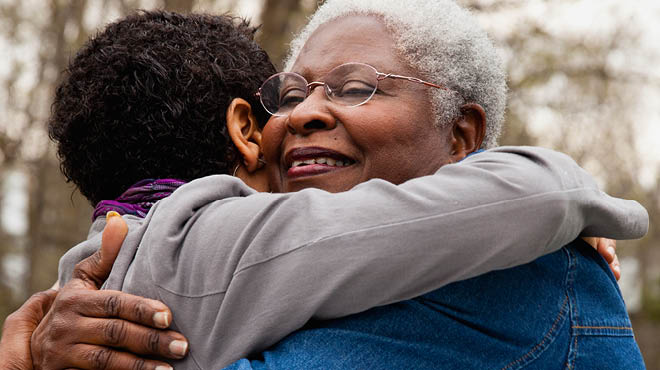
Patients & Visitors
Recent Posts
Spiritual Care in Mankato
Mayo Clinic Health System Spiritual Care professionals use core beliefs, values and inner strengths to inspire hope and alleviate suffering. We believe your culture, faith and spiritual practices are vital resources for your healing and well-being, especially in times of transition and vulnerability.
You matter. We are here to assist with the spiritual care needs most important to you and your loved ones. We also are a liaison to faith, spiritual and cultural communities at your request. Learn more about the Spiritual Care offerings below:
The Spiritual Care team's services include:
- Advance care planning support
- Crisis intervention
- Decision-making support
- End-of-life care
- Ethical concerns
- Exploration of spirituality and meaning
- Grief support
- Liaison with faith, spiritual and cultural communities
- Life transitions and coping
- Prayer
- Providing sacred readings or materials
- Rituals and sacraments
- Staff support
While patients are the primary recipients of care, family members and friends of patients, as well as staff, may benefit from these services.
Chaplains:
- Make sacraments and other religious observances, such as Ash Wednesday, or arrange community clergy to provide those services.
- Offer ecumenical memorial services in the medical center to meet patient, family and staff needs. Services are usually offered in the chapel or a conference room.
- Provide care for patients by request of patients, families and staff.
- Serve 24/7 on-call for spiritual care needs. Contact the nurse to page or text the chaplain for emergencies. All other calls to the Department of Spiritual Care will be answered on the following day.
- Help patients and families complete advance care plans in cases where spiritual or religious issues are especially prominent.
- Offer spirituality clinical groups to Psychiatry & Psychology patients, regardless of faith affiliation or lack of affiliation with any particular religious denomination or sect.
- Offer preoperative support and encouragement and postsurgical visits, as requested by patients and time allows.
- Offer support to parents who experience the loss of their child through miscarriage, stillbirth or shortly after birth.
- Participate in unit conferences for palliative care, hospice and other teams.
About the team
Many clinical members of the Department of Spiritual Care are board-certified by a recognized national accrediting agency. Six chaplains cover daily and rotational on-call care. They represent the Baptist, Converge and nondenominational, Lutheran, Polish National Catholic, Roman Catholic and Presbyterian faiths. A Roman Catholic priest is usually available for sacramental needs.
Hours
Coverage is available weekdays from 8 a.m. to 5 p.m., with 24/7 spiritual care hospital and hospice service availability for emergencies and referrals.
Chapel
The chapel is available 24/7 in room 1-607 of the hospital. The chapel has Muslim/Islamic removable partitions, stained-glass windows, a minibaptistry, a piano, a pulpit and comfortable seating for loved ones.
Contact us
- Oncology: 507-594-2677
Ask for the oncology chaplain. Chaplains are available daytime hours on weekdays. - Palliative Care: 507-594-2677
Ask for a palliative care chaplain. Chaplains are available daytime hours on weekdays. - Clinic spiritual care consultations are scheduled through health care professionals at your clinic location. Let your health care professional know if you would like a consultation for a chaplain visit.
- Spiritual Care: 507-625-4031
Ask for the on-call chaplain. A chaplain is available 24/7.
Chaplain /Spiritual Care services are provided based on chaplain availability. For emergencies, contact the on-call chaplain at 507-625-4031. For nonemergencies, call 507-594-2677 on weekdays.
Research resources
Research is being conducted in the areas of palliative care, hospice and spiritual care.
Learn more:
- "Deactivating a Pacemaker in Home Care Hospice: Experiences of the Family Caregivers of a Terminally Ill Patient."
- "Family Caregivers' Confidence Caring for Relatives in Hospice Care at Home: An Exploratory Qualitative Study."
- "Spiritual Care at the End of Life: Does Educational Intervention Focused on a Broad Definition of Spirituality Increase Utilization of Chaplain Spiritual Support in Hospice?"
- "Terminal Delirium in Hospice: The Experiences and Perspectives of Caregivers Providing Care to Terminally Ill Patients in Home Settings."


